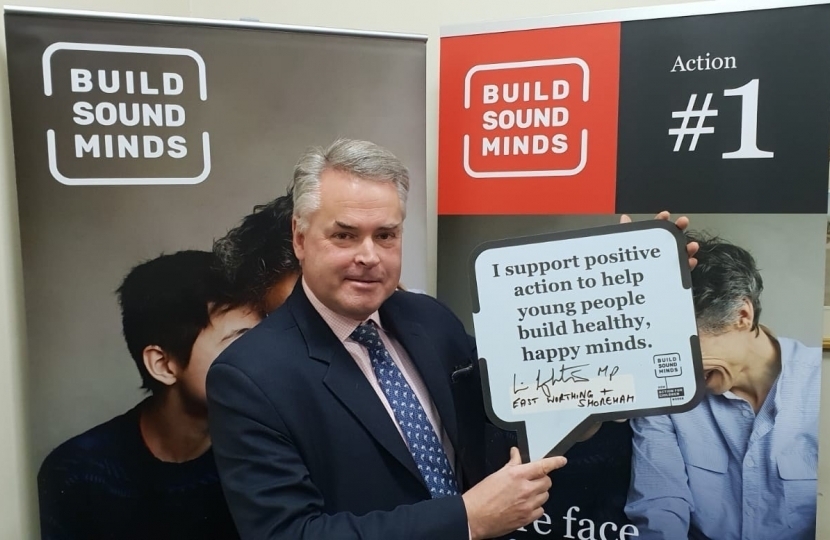
When I first became an MP over 20 years ago mental illness was still very much a ‘taboo’ subject, a much neglected and misunderstood part of the NHS. It was something that happened to 'other people' and was scarcely talked about. As Shadow Minister for Mental Health, at one time I was involved with the legislation to update the Mental Health Act but in many cases, it was more to do with how we could contain people with severe mental illness rather than treat them and respect their rights as fellow human beings.
Twenty years on, whilst there is still a lot to do, things have changed dramatically and essential to that has been changing people’s attitudes and bringing mental health out of the shadows. Given that at least 1 in 4 of us will experience a mental illness at some stage in our lives why wouldn’t we want to deal with mental illness on a level playing field with all the other illnesses and conditions the NHS deals with? It is first and foremost an illness and people with an illness need treatment and support not stigmatising and compartmentalising. To deal with an illness you first of all need to present with symptoms and secure a diagnosis, and these days many more people are willing to come forward and seek help.
Up and down the country I regularly see some fantastic schemes in schools, businesses and health settings offering all sorts of advice and services to people who may be suffering from all levels of mental illness. Given everything we hear about the relentless pressure of social media and the sometimes fatal impact that can have on impressionable young people, clearly, we are only dealing with the tip of the iceberg and much more urgent action is required. Businesses invest in occupational mental wellness schemes to get the most out of their workforce. Even in Parliament we have recognised the particular stresses and pressures that Parliamentarians can be subject to, with over 230 members of the Commons and Lords have undertaken the weekly mindfulness courses, and I chair the All Party Parliamentary Mindfulness Group that oversees them.
Recently I was approached by a young constituent who had recently graduated from university and been diagnosed with Autism Spectrum Disorders during their studying. They were advised to seek an assessment for treatment when they returned home to Sussex after graduating. From there, they were put on a 300 person long waiting list and there was currently no clinician in place to assess her in any case. That particular student is very articulate and very determined and came to see me knowing what she needed and what wasn’t available. I took her to see the head of the mental health service to explain her story and I am glad to say that the assessor clinician position has now been filled and my constituent has been asked to act as a champion for young people needing support from mental health and learning disability services and scrutinise the work of the mental health trust. Because of the difficulty in receiving a diagnosis we both collaborate to see what more we can do to help local people navigate their way around mental health services.
The creation of this website is an effort to suggest and redirect concerns to helpful charities and both national and local health and social care organisations. I am delighted to say that the management of the Sussex Partnership Trust are supporting this initiative and just as they did when I took my young constituent to see them, are keen to hear your feedback and disseminate as much helpful information as they can. You can do this anonymously through the website where you will see we have included some ‘chat boards’ or by emailing me directly if you are a constituent. I will then post occasional ‘report back’ videos and replies responding to the many concerns that have been raised.
In managing this website, I am keen to promote examples of best practice and direct users to helpful sources while also wanting an interactive space to explore the help of national local services, so that in the case your mental health concerns are not dealt with, I will be keen to challenge the local NHS services to improve what they are doing or explain why things are not better and what they are doing about it.
Thank you for your support.
